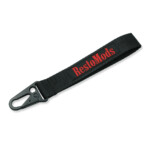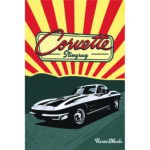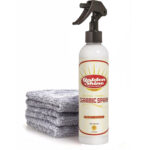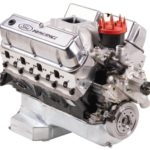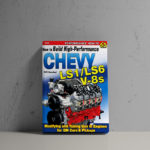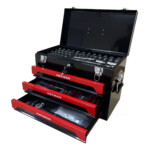Getting The Cars You Want – This Guy Stopped Counting After 50

If you’re like most of us here (on the Internet), you’re spending at least an hour a day looking at other people’s cars wondering: “Man, why can’t I have a crazy cool 1968 Chevelle?”..or whatever it is that makes you giggly.
We’ve all got a bucket list of amazing vehicles that we’d like to experience and own, but most of them just remain in the realms of fantasy.
There are no two ways about it – cars are an expensive hobby. Granted, not the most expensive one, but still largely dictated by the thickness of one’s wallet.
Getting the dream car
If your dream car is a McLaren, we can’t help you. Find something you can do well and is reasonably sought after, lock your buttocks down and grind away at it until you have $500,000 in the bank.
Here in the muscle car department, things are less expensive…sort of… Fully restored / modified units go for $50,000 to $100,000. Depending on how rare, original and pumped you want them, there really isn’t a top ceiling on price.
Still, 50 grand for a 50-year-old car a hard pitch to your significant other.

Many fellows muster up their tools, find a decrepit old shell of what used to be a muscle car 50 years ago, and undertake a decade-long restoration project in their garage. It ends up costing more than buying it in the same condition, but at least your hard labor, stress and anxiety of never completing the car come free of charge.
Still, not all of us are wrenchers. If you can’t build them and you can’t sploosh out the cash to buy them, how do you get the cars you’ve always wanted?
You hustle for them!
Wheeling and dealing isn’t in everyone’s blood, but I’ve had the pleasure to talk to one very talented man who’s been flipping cars in his spare time for twenty years and stopped counting after 50.
Meet David Sparrow! He lives in Alabama with his wife and three kids. He’s a government contractor with 14 years of experience working for a 3-letter agency. It’s a stable job with decent income that allows him to take good care of his family.
However, his true passion is cars..well and guns…but mostly cars.

David has a background in business management and ran some performance / car audio shops back in the day. As he ventured into the automotive market some 20 years ago, he quickly discovered that car prices are always relative.
You can buy a car for whatever someone is willing to take for it. And you can sell a car for whatever somebody is willing to give for it.
If you search long enough, you’ll eventually find two people who have different understanding of what a given vehicle is worth. Step in at the right time, give them a little dance, be creative as you set up deals, and you can walk out with the difference in your pocket.
In this article, we’ll go through some of David’s stories on car dealing and give you some tips to try out next time you’re looking to buy or sell a vehicle.
How to buy and sell cars the right way
David started out in 2008 with $2,700 and worked his way up to the super clean Chevelle seen above with zero rust, brand new paint, brand new engine, brakes and revised suspension.
In 2008, David purchased his neighbors 1989 Mustang GT convertible for $2,700. She was fed up with the car constantly scraping on the steep ramp of her driveway.

Later, he swapped the Mustang for a BMW E36 M3. This car was almost three times more expensive when new and even today it’s worth like $15,000 – $20,000.
Even if it was beat up, this guy’s got some negotiation skills!
But he didn’t stop there. David swapped the M3 for a 1958 Plymouth Belvedere and wanted to dress her up as “Christine”. The transformation cost was deemed too expensive, so he sold it for $5,500 and doubled his initial investment.
Next, David spent $4,000 on a Chevy Suburban. It was painted desert-tan, had a lift kit, Humvee beadlock wheels and 37-inch tires.

Around the same time, he developed an interest in firearms, so in 2012, the Suburban was traded for a nice collection of guns, including:
- Very nice low number M1 Garand
- Brand new Colt AR-15
- Iraqi Tabuk AK47 pattern rifle
- Sig Sauer P226 Navy pistol
- Glock pistol
In 2012, this assortment was worth $5,000 give or take. David proceeded to trade his weapons for better ones or sell them off for profit, just like his cars.
The following year, he purchased another Suburban for $3,975. This one was a very clean, low mileage 4×4 model and featured a rare Warn front bumper and winch.

David took those off and sold them apart for $1,200. He sold the Suburban with an OEM bumper for another $6,000.
Eventually, he wound himself up with a 1989 Chevrolet K5 Blazer and a very nice, low mileage, 1992 Camaro RS. He had spent $13,000 for them both – almost all of which came from trading cars. He sweetened a deal here and there, but mostly kept his salary for his family.
The Camaro RS came with a 305 cubic-inch V8, 5-speed manual and a rare Bose audio option. That LB9 small block features tunnel port fuel injection – a technology which descended down from the Corvette. However, with just 230 horsepower, the Camaro just wasn’t the muscle car David was itching for.

Three years ago, David decided he wants some of the hot stuff from the classic muscle car era. So, he listed both of his vehicles as a trade-in for a clean muscle car or a package deal for $20,000.
“I knew to the right person they would be worth this.”
Eventually, an older gentleman contacted him with this 1968 Chevrolet Chevelle Malibu. It’s a fine example this one and it had a fair amount of mods, but the owner wanted $28,500 and his Craigslist ad had been stagnant for a while. Realistically, it was worth 20 – 23 grand, but the owner was selling for profit, just like David was.

The two shook hands – David got the Chevelle for both of his cars and $3,000 in cash. So, in total, the car cost him $16,000.
But it really cost him $2,700 and 9 years of trading and selling up his cars. He got to enjoy a nice variety of vehicles and he was rewarded with this beautiful and well-preserved 1968 Chevrolet Chevelle Malibu at the end.
You can read all about that car in my other article – David Sparrow’s 1968 Chevrolet Chevelle Malibu
Not bad for a hobby, eh?
And these were just his toy cars. Simultaneously, David was also trading his daily drivers in the same fashion. He owned a 2005 Corvette for two years and ended up selling it for $1,000 more than he paid.

The car came with Kooks long-tube headers, Kooks cats and cross-pipe, B&B bullet exhaust, Vararam cold air intake and a tune from HP Tuners. These mods helped resell it at profit as they saved the next owner thousands.
He practically had the car for free for two years.
One of his greatest examples is the Ram 3500 truck with a Cummins diesel engine, 4×4 and dual wheels at the back.
“I got into that truck stupid cheap (something like 11k under book). Drove it again about two years and walked away with a few grand on top of what I had paid into it while owning it.”

Of course, there have been a couple of bummers along the way
David successfully profited on most cars he bought. However, there were a couple of vehicles throughout the years which left him with a sour taste.
He remembers vividly about the BMW 7-series he got when he was still young and impatient.
In 2002, the 4th generation BMW 7-series came out and David wanted it badly. I can’t blame him, those bimmers have got style and the 7-series is the flagship model with all the new tech and fancy features.
David had experience with other BMWs before and they’re a lot of fun. He wanted to step up to the senior models and got himself a used BMW E65 for 22 grand. He got it with expensive 3-piece wheels worth $10,000 alone.

However, what seemed like a super nice luxury sedan quickly turned into a nightmare. It was the first year of the generation and came with a host of problems.
Electrical issues plagued the car all around – various sensors going out, lighting the dash like a Christmas tree. There were problems with the battery and several pulleys on the engine needed replacement – in the first year.
But worse of all, the transmission control module developed a bit of character. The gearbox was jerking in and out of gear, searching for the right ratio and taking off the line with a huge clunk.
The car was an absolute lemon and David dumped it at a loss after one year of driving. It was only because of the expensive wheels that he was able to get $17,500 – a loss of $4,500 not even counting the repairs he made.

There’s another one which almost worked out in the end, but had David stepping on his toes for a while.
Around 21, he purchased a brand new Suzuki ATV for $4,800. He drove it around for a year, but quickly grew tired of it. He got into contact with the owner of a nice-looking 1990 Toyota 4Runner. David hadn’t had a real 4×4 vehicle until then, so he was excited about getting one.
The two traded even and David proceeded to mod out his new SUV. He added some wheels and tires, safari rack, nice lights, a basic stereo system.

“Little did I know that this thing was a ticking time bomb. I was driving it one day and a rod went through the block. Now my fiance was super pissed. Also, I hadn’t properly inspected this thing and it had a ton of rust underneath. This was in my early stages of wheeling and dealing.”
In his effort to ditch the 4Runner, David traded it for a nice Fox-body Mustang Notchback coupe. It was modified and very fast and should have triggered some warning lights. But David’s used to getting amazing deals, so he didn’t think much about it.
One day at Sonic, some guy slams on the brakes and jumps out yelling about how the car was his and making a scene.

Turns out, the guy was receiving payments from the “owner” of the Mustang, who traded it to David.
The guy signed the title over, expecting the payments to continue, but the “owner” just whizzed off with the car, never to be seen again. A grave mistake.
When he realized he was screwed for good, the guy threatened to burn the car down and peeled off. David resorted to parking it in the audio shop every night.
“We were buying a new house and my wife told me one of my Mustangs had to go. So I ended up selling it to a friend for $4500… So I came out pretty good.”
Read “pretty good” as in “I dodged a catastrophe and didn’t even lose money on the car”.
But there was one catastrophe he couldn’t dodge…

“The 2002 Mustang GT is the car that converted me for life from 4-bangers. I still love European cars, however. I spent over $10k in mods on this car only to total it illegally street racing. It was procharged and D1SC intercooled with a ton of other mods.”
David’s tips for making the best used car deals
If this all seems like random luck, I assure you it is not. David has spent countless nights, year upon year, researching, calculating and planning his next move.
He worked so hard for his success, it turned into a second job of a sort. There’s no way around spending the time and effort, however, David willingly provided some of his tips on how to get into car dealing.
1. Research
First and foremost, research, research, RESEARCH!!!
You start with the model.
- What does it offer for its price?
- How does it compare to other cars in the same price region?
- Why should you pick a particular set of features and stay clear of other ones?
Then you break it down to generational and yearly changes to see which particular cars are the best, most desirable, least likely to suffer catastrophic failure.

If you’re planning to own the vehicle long term, reliability ratings are immensely important. Cost of maintenance and insurance are a big factor as well. You can win or lose money just on the running costs of the vehicle.
“One of the biggest assets to me when buying a vehicle is reading consumer reviews. Actual people giving their unfiltered opinion on the vehicle and sharing their experiences whether good or bad.
No sugarcoating, no shilling.
Consumer reviews kept me from buying a Range Rover once. I wanted one so bad but as I clicked each review it got worse and worse. There may have been 2/10 positive reviews by the time I was done.”
Join the dedicated Facebook groups and web forums for your car – there’s definitely at least a couple. Read what other owners are experiencing, ask questions and heed their advice.
If you have friends who own the same car, go for a test drive. See how the car feels and whether it suits your needs.
If you know any professionals who work in the car industry – mechanics, service technicians, dealership employees, insurance brokers, etc – ask them about the car you’re interested in. If it pops often in their work, they’ll remember it and tell you about the red flags.
“I had a friend who owned a towing business and one time he told me that Land Rover was the number one brand that broke down and they towed.”
2. Patience
Dealing used cars requires a tonne of patience and some garage space to store your vehicles.
Making hasty buying or selling decisions results in not getting as much out of the deal as you possibly can. If you’ve done your research and know the price you should get, don’t settle for anything else.

“I am always patient and will sit on a vehicle for months if I have to until the right trade or deal comes along.”
3. Persistence and coverage
Opportunities come and go on a whim. If you’re going to trade cars, you have to be on top of the market every single day.
- What’s the demand and supply for a given vehicle?
- How do prices and listings evolve over time?
- How does the market differ from state to state and county to county?
In order to stay on top of the game you need to cover the main marketplaces and multiple locations.
“I have a rotation I go through when surfing to buy something. I’ll start on Facebook Marketplace, then visit Craigslist, eBay, vehicle-specific forums, Autotrader, Bring a Trailer, etc. I’m sure I am leaving some out. I’ll search by various different filters and price ranges. I also change locations.
I used to look hundreds of miles away for the right deal but these days I try to stay under 250 mile radius from my home. With that being said, if it’s a classic car or a rare vehicle sometimes it’s necessary to travel further to get the right vehicle. “
4. Negotiation
“NEGOTIATE NEGOTIATE NEGOTIATE!
NEVER, I repeat NEVER pay the asking price for a car. I guarantee you the salesman was making fun of you after that deal. Dealerships especially mark vehicles up because they know most people will try to haggle with them to lower the price.
It’s car buying 101, or so I thought”

If you’re buying from a private owner, there may be less room for haggling, as they may be trying to cover their financing costs or use the money for their next car which is worth some amount of dollars.
However, you should still always try!
5. Sell outright
David advises strongly against trading in your vehicle at the dealership. Sure, it’s convenient to get a quick sale and not deal with the hassle, but you will be getting A LOT LESS money for it. Guaranteed.
If your car is on a lease or loan, dealerships need to payout the full price to the finance company, however, they usually don’t intend to give you that much money for it.
So, what they’ll do is roll the excess into the starting price of your next vehicle. Leased or financed, this excess will accrue interest, driving the costs further up.
“You haven’t even pulled off the lot and you’re upside down on value. SELL OUTRIGHT!”

6. Inflating prices
As we mentioned at the top, in the used car market, prices are relative.
You should have noticed how David frequently inflates the values of the cars he sells. He listed his 1989 K5 Blazer and 1992 Camaro RS as a package deal for $20,000, while only paying $13,000 for both.
“That wasn’t astronomical to throw up flags and people be like look at this idiot. I have done this many times. Set the price a little high and see where it goes. You can always come down, but you can’t go back up.”
If you don’t ask, you don’t get. In the classic car market, this rule is especially valid, since prices are set uniquely for each vehicle, depending on it’s condition, rarity, equipment, location, and demand.
7. Presentation
Ask anyone in marketing. Presentation makes sales happen.
David’s become so good at selling cars, people are paying him money to list their cars for sale on the Internet. He’s become the unofficial auto broker for all his friends.
“I get the vehicle from them and, if necessary, do a full detail to get it up to par for pictures. After that, I take several detailed photos. I compile a nice, lengthy, detailed ad that’s well-written and easy to navigate.“
Of course this is predated by extensive research to gauge the market and establish the correct baseline price for the particular vehicle.

David’s standard rate is $500, if he does all the marketing, negotiations and the owner simply comes to sign the papers.
“I have had a few deals where the owner will tell me I keep anything over X amount. I’ve made some nice paydays doing that. On one vehicle it was approximately $1500, on another it was a grand.”
These days, with his 3rd child on board and the family transitioning into a new home, David’s cooled down the hobby bit. Yet, he says there are three children and only two vehicles to pass down to the next generation.
We’ll let you know the pitch to his wife went…
Recent Posts
-
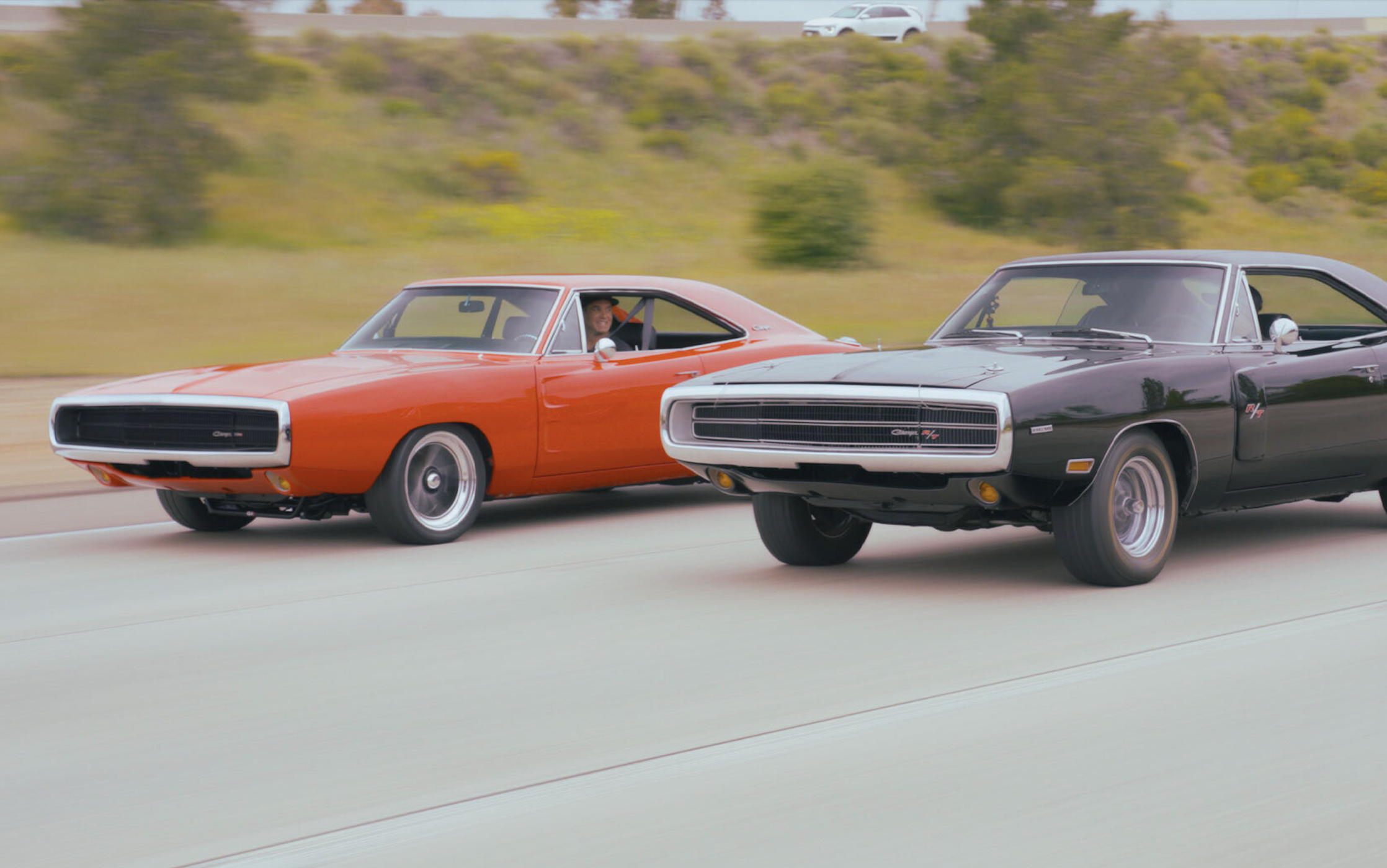
1970 Charger Showdown: Classic RT/SE Hemi vs. RestoMod Hemi
June 23, 2025When it comes to American muscle, few cars have captured the hearts of enthusiasts and dominated the silver screen like the Dodge Charger. From…Read more -
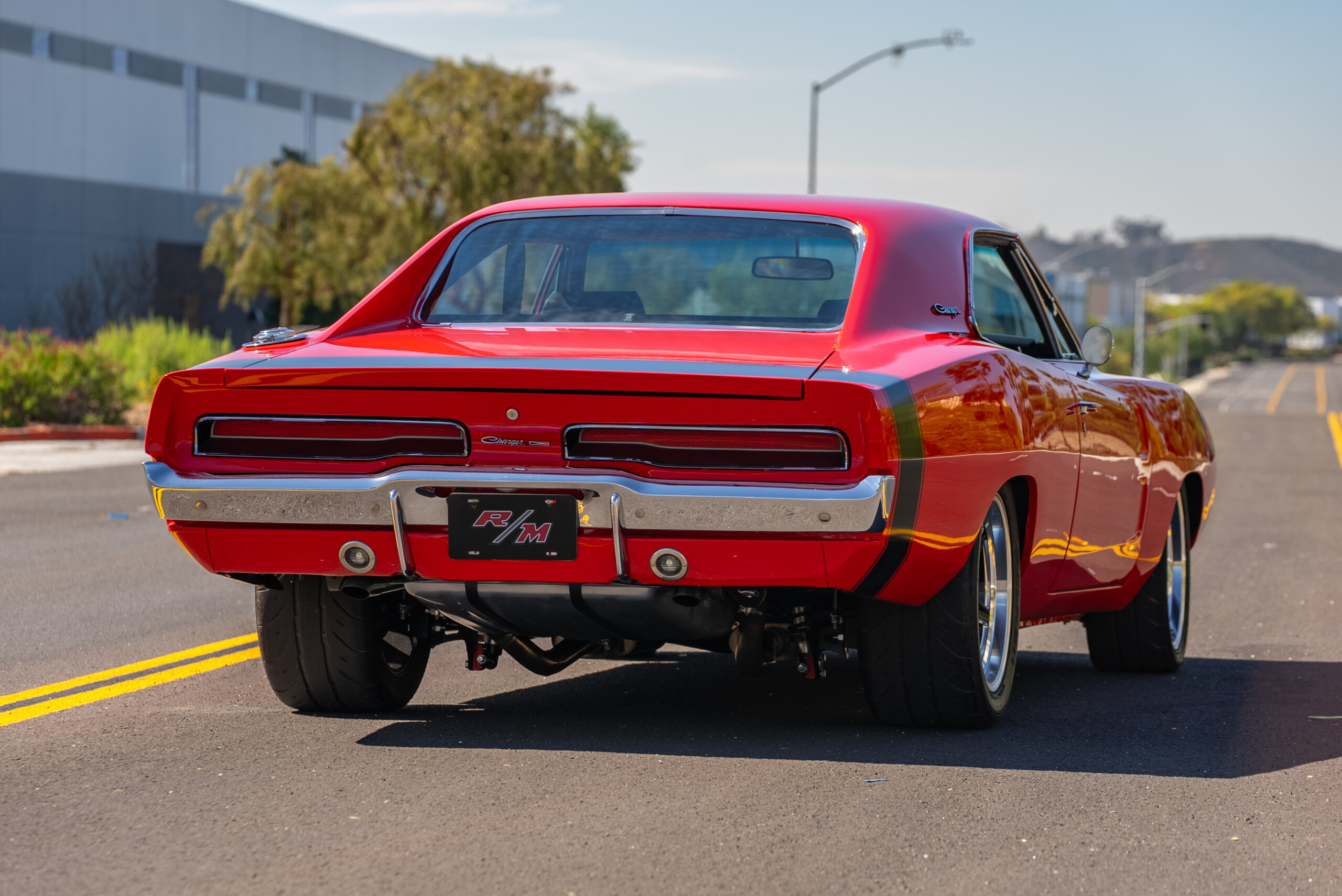
The RM30 1970 HEMI Dodge Charger RestoMod
April 22, 2025The 1970 Dodge Charger is one of the most iconic silhouettes in American muscle car history and RM30 takes that legacy to the next level.…Read more -

RestoMods Garage Update
February 11, 20251967 Chevrolet Chevelle (Ground Up Restoration) The 1967 Chevelle 427 is coming together, now sitting on a Roadster Shop chassis that completely transforms its handling…Read more
Become a Car Club Member
Car Club Members Get Entries to Win, Discounts in our Shop, Discounts with our Preferred Partners and more!
Membership benefits
By joining the RestoMods Car Club Today, you will receive amazing perks plus 15 bonus entries into our sweepstakes for every month you are an active member
-
Auto Discounts:Curated Discounts From Your Favorite Parts Companies
-
Restomods Monthly:Monthly Magazine With The Latest Industry News
-
Classified Ads:Get Free Postings seen by 300,000 enthusiasts monthly
-
Car Show Tickets:Check out the biggest vintage car shows on us.
-
Exclusive Car Deals:First chance to purchase any prize cars not selected






Restomods on Instagram
Follow us on Instagram and other networks




